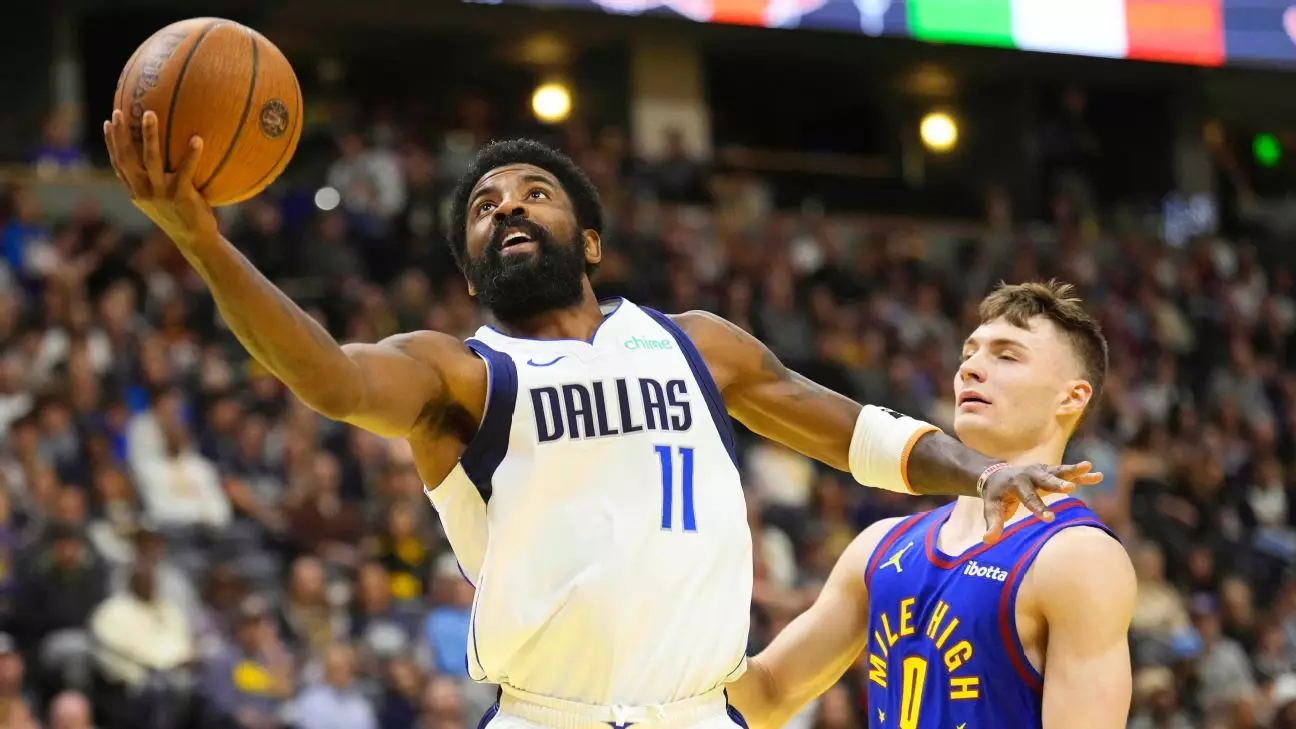Dallas Mavericks star Kyrie Irving is currently facing a significant setback in his career due to a bulging disk in his lower back. After missing five games, he returned to the court only to battle through discomfort and lackluster performance. This injury not only impacts Irving as an individual but also poses challenges for the entire Mavericks team. As stated in recent reports, Irving described the last two weeks as particularly difficult, creating concern among fans and management alike. This injury’s nature—deemed a lumbar sprain by the Mavericks while ESPN reported the bulging disk—highlights the various ways injuries can be interpreted and treated in professional sports.
Performance Under Pressure: The Game against the Nuggets
In his comeback game against the Denver Nuggets, Irving struggled significantly, posting a mere 11 points while shooting only 22% from the field. This poor performance raises questions about the readiness of athletes returning from injury. Should teams consider allowing greater recovery time rather than pushing players to return prematurely? Irving himself candidly acknowledged that it felt like he had just “hopped off the couch” to compete, which may signify a need for more stringent protocols before allowing injured players back onto the court.
The situation worsened for the Mavericks as they faced additional roster challenges. With Luka Doncic sidelined due to a left calf strain and the recent sprain of center Dereck Lively II’s ankle during the same game, the team is becoming increasingly vulnerable. These injuries call into question the depth and resilience of the Mavericks as they navigate the ongoing NBA season. The pressure for Irving to shoulder more responsibility has only escalated, further complicating his path toward recovery.
Pain Management and Mental Fortitude
Irving spoke openly about his struggles with pain management stemming from the bulging disk, including discomfort radiating into his legs and hamstring. His candid remarks regarding the intensity of the pain—so severe that it obstructed his ability to meditate—shed light on the mental aspects of dealing with physical injuries. Many athletes face the psychological burden of performing at their best while contending with pain, and Irving’s situation presents a stark reminder of that reality.
Looking ahead, Irving expressed his intent to continue playing, indicating his commitment to overcoming this hurdle and contributing to his team’s success. However, this creates a delicate balance between managing his health and fulfilling his role as a star player. With the support of his medical team and shared experiences from teammates, Irving has the tools to navigate this challenge. His journey serves as a testament to the larger conversation about athlete health in professional sports, emphasizing the necessity of addressing physical and psychological well-being concurrently.
Kyrie Irving’s struggles with his back injury highlight broader themes in professional sports concerning the impact of physical health on performance, team dynamics, and the critical nature of effective pain management. As the Mavericks continue their season, Irving’s health will remain a focal point—one that underscores the fragility and resilience inherent in competitive sports.


Leave a Reply